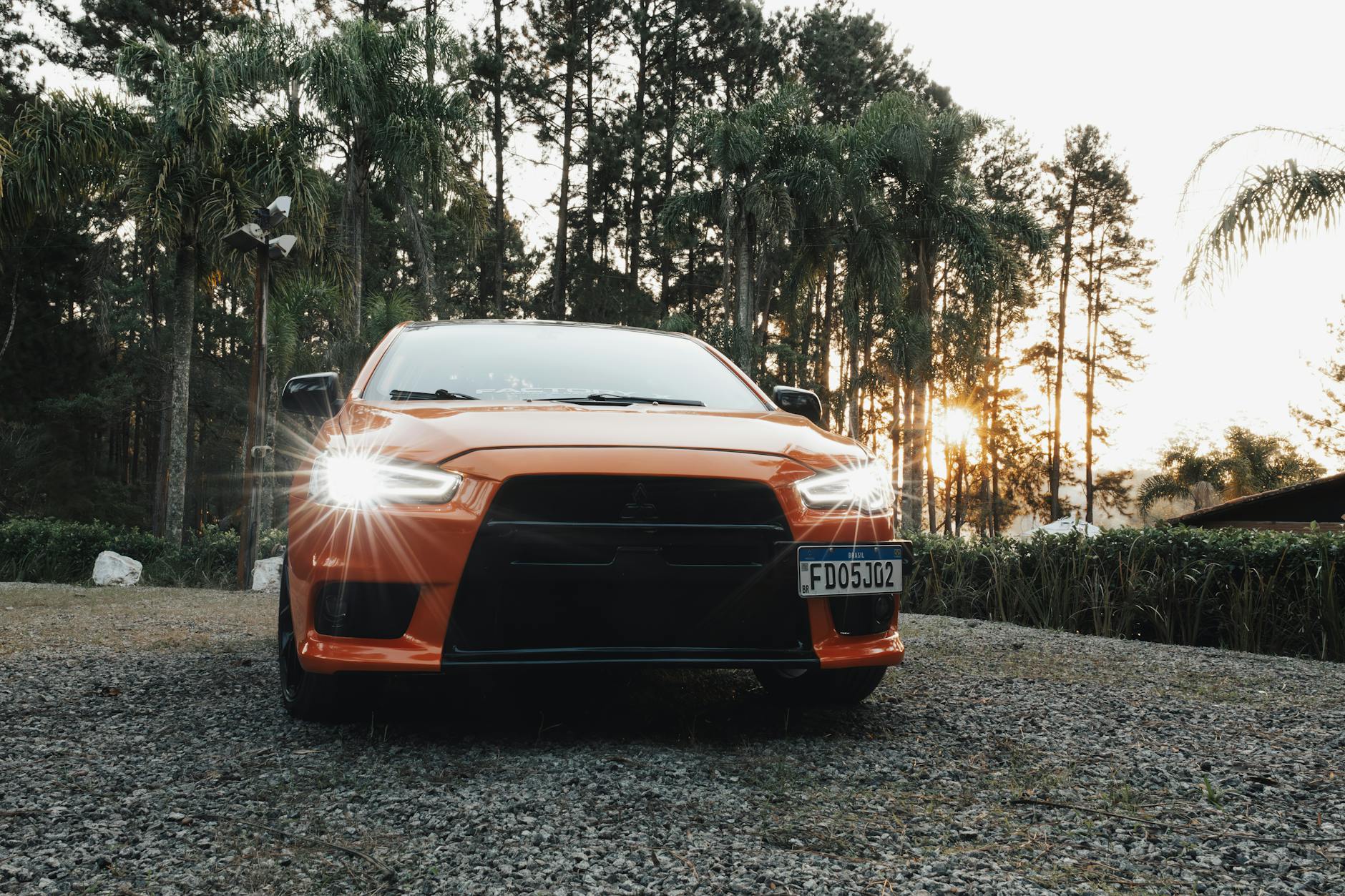Understanding PCP Car Finance
Introduction to PCP
Personal Contract Purchase (PCP) is a popular car finance scheme in the UK that allows you to spread the upfront cost of a vehicle over an agreed term. This type of agreement provides flexibility and several options at the end of the contract. With PCP, you can return, renew, or buy the car once the contract ends (Kia).
The key components of a PCP deal include an initial deposit, monthly payments, and a final balloon payment if you choose to buy the car at the end. The final payment, also known as the Guaranteed Minimum Future Value (GMFV), is set at the beginning of the contract based on the car’s predicted value at the end of the term.
PCP deals are known for offering lower monthly payments compared to other finance options, making it an attractive choice for many drivers. For more details on how PCP works, visit our PCP car finance explained.
Key Differences: PCP vs. Car Leasing
PCP and car leasing are both popular methods for financing a vehicle, but they have some key differences.
| Aspect | PCP | Car Leasing |
|---|---|---|
| Ownership Option | Option to buy at the end | No ownership option |
| Monthly Payments | Lower monthly payments | Fixed monthly payments |
| Deposit | Required | Usually required |
| End-of-Term Options | Return, renew, or buy | Return only |
| Car Type | New or used | Typically new only |
| Flexibility | High | Lower |
Figures courtesy Kia
PCP provides flexibility with three end-of-term options: you can return the car, renew the contract with a new vehicle, or make the final payment to own the car. It allows you to build equity over the contract period and offers a choice of both new and used cars.
Car leasing, on the other hand, involves fixed monthly payments for a brand-new car over a set term. At the end of the lease, you simply hand the car back with no option to purchase. Lease agreements often have limitations such as mileage caps and charges for damages. There are no voluntary termination rights or opportunities to own the vehicle (Kia).
When deciding between PCP and leasing, consider your personal circumstances and preferences. If ownership at the end of the term is important to you, PCP might be the better option. If you prefer fixed monthly payments on a brand-new car without the commitment of ownership, leasing could be more suitable.
For more information on PCP deals, visit our PCP car deals page. If you’re interested in comparing PCP with other finance options, check out our PCP vs HP guide.
Advantages of PCP
Flexibility at Contract End
One of the key advantages of a Personal Contract Purchase (PCP) is the flexibility it offers at the end of the agreement. At the conclusion of your contract, you have three main options:
- Return the Car: Hand the vehicle back to the finance company without any further financial obligations, provided it meets the agreed-upon condition and mileage limits.
- Renew the Contract: Part-exchange the vehicle for a new one, using any equity built up in the car as a deposit for your next PCP agreement.
- Buy the Car: Pay the final balloon payment, also known as the Guaranteed Minimum Future Value (GMFV), to own the car outright.
This flexibility enables you to adapt to changing circumstances, whether you want a new vehicle, wish to keep the current car, or simply want to walk away (Hippo Leasing). For more details on how these options work, visit our section on pcp car lease deals.
Lower Monthly Payments
PCP deals typically offer lower monthly payments compared to other finance alternatives. This is because you are only paying for the depreciation of the vehicle plus interest, rather than the full value of the car. This makes driving a new or higher-end car more affordable (Hippo Leasing).
| Finance Option | Monthly Payment (£) |
|---|---|
| PCP | 250 |
| Hire Purchase | 400 |
| Lease | 300 |
The reduced monthly payments can be particularly beneficial if you have a limited budget but still want to enjoy the benefits of driving a new car. For a deeper understanding of the cost comparison, check our pcp vs hp guide.
Equity Building Opportunities
Another advantage of PCP is the opportunity to build equity over the term of the contract. As you make your monthly payments, you are effectively paying off the depreciation of the vehicle. At the end of the agreement, if the market value of the car is higher than the GMFV, you can use this equity as a deposit for your next car.
This equity-building aspect provides a financial cushion and can make it easier to transition to a new vehicle without having to find a large upfront deposit (Kia). To see how much equity you could potentially build, use our pcp calculator.
By understanding these advantages, you can make an informed decision about whether PCP is the right choice for you. For a more comprehensive explanation, check out our pcp car finance explained section.
Considerations for PCP
When entering into a Personal Contract Purchase (PCP) agreement, there are several critical factors to consider. Understanding these aspects can help you make informed decisions that align with your financial situation and long-term goals.
Impact of Deposit Amount
The initial deposit you make at the beginning of a PCP agreement significantly affects your monthly payments. Typically, a deposit is around 10% of the vehicle’s price (Carbase). A higher deposit will result in lower monthly payments because it reduces the amount you need to finance. Conversely, some providers, like Hippo Leasing, offer zero deposit options to provide flexibility in payment choices (Hippo Leasing).
Factors Affecting Monthly Payments
Several factors influence the monthly payments in a PCP agreement:
- Vehicle Price: The initial price of the car is a primary determinant.
- Deposit Amount: As discussed, a higher deposit lowers monthly payments.
- Term Length: The duration of the agreement affects the payment amount. Longer terms generally mean lower monthly payments.
- Mileage Limit: PCP agreements often include a mileage cap. Exceeding this limit can result in additional charges.
- Interest Rate: The APR (Annual Percentage Rate) charged on the borrowed amount influences the total cost.
| Factor | Influence on Monthly Payments |
|---|---|
| Vehicle Price | Higher price increases payments |
| Deposit Amount | Higher deposit decreases payments |
| Term Length | Longer terms decrease payments |
| Mileage Limit | Exceeding limit increases costs |
| Interest Rate | Higher rate increases payments |
For a detailed calculation of your potential monthly payments, you can use our pcp calculator.
End-of-Term Options
At the end of a PCP agreement, you have several options (Carplus):
- Buy the Car: Pay the balloon payment, which is the Guaranteed Future Value (GFV) of the car, to own it outright. This payment can be substantial, potentially as much as half of the initial purchase price.
- Return the Car: Hand the vehicle back to the finance company and walk away, provided the car is in good condition and within the agreed mileage limit.
- Trade-In: Use the car as a part-exchange for a new vehicle, leveraging any positive equity towards the deposit on the new car. If you have negative equity, you will need to settle the difference before proceeding.
| End-of-Term Option | Description |
|---|---|
| Buy the Car | Pay the balloon payment to own the car |
| Return the Car | Hand back the vehicle and walk away |
| Trade-In | Use the car as part-exchange for a new one |
Understanding these options can help you make an informed decision that suits your financial and personal circumstances. For more details, visit our pcp car finance explained page.
When considering a PCP agreement, keep these factors in mind to ensure you make the best financial decision for your needs. For more information on PCP agreements, check out our pcp agreement page.
PCP vs. Leasing Comparison
When considering a vehicle finance option, understanding the differences between Personal Contract Purchase (PCP) and car leasing is essential. This section will provide a detailed comparison to help you make an informed decision.
Cost Analysis: PCP vs. Leasing
PCP and car leasing (Personal Contract Hire or PCH) have different cost structures. With PCP, you make an initial deposit followed by monthly payments. At the end of the contract, you have the option to buy the car by paying a final balloon payment. Alternatively, you can hand back the car or trade it in for a new model. Car leasing involves fixed monthly payments throughout the contract term, without the option to purchase the vehicle at the end.
| Factor | PCP | Leasing |
|---|---|---|
| Initial Deposit | Required | Usually required |
| Monthly Payments | Lower than leasing | Fixed, typically higher than PCP |
| Final Payment | Optional balloon payment | Not applicable |
| Ownership Option | Option to buy | No ownership, return the car |
| Interest Charges | Typically applies | Usually no interest |
| Additional Charges | Damages, excess mileage | Damages, excess mileage |
For detailed cost comparisons, check our pcp car finance comparison.
Suitability for Different Car Types
PCP and leasing suit different needs and types of vehicles. PCP is ideal if you prefer the flexibility of owning the car at the end of the contract or trading it in for a new one. It’s particularly suitable for high-value vehicles where you might want to build equity over time. Leasing, on the other hand, is perfect for those who like to switch cars frequently and prefer lower upfront costs without the intention of owning the vehicle.
- PCP: Ideal for new cars, high-value vehicles, and those looking to potentially own the car.
- Leasing: Suitable for individuals who prefer driving a new car every few years without the hassle of ownership.
For more information on PCP and its suitability, visit pcp car finance explained.
Early Termination Considerations
Both PCP and leasing contracts allow for early termination, but the penalties and processes differ.
PCP: You can terminate your PCP agreement early if you have paid back at least 50% of the total finance amount. This process is known as voluntary termination. If you haven’t reached the 50% mark, you may still exit the contract, but additional costs could apply. Learn more about your pcp agreement terms.
Leasing: Ending a lease early can incur heavier charges. Typically, you may need to pay 50% of the remaining finance plus an early termination fee. This can make early termination of a lease more costly compared to PCP. For full details, see our guide on pcp car leasing.
| Factor | PCP | Leasing |
|---|---|---|
| Early Termination Fee | After 50% of finance paid | 50% of remaining finance + fee |
| Process | Voluntary termination available | Heavier penalties, fewer options |
| Flexibility | More flexible | Less flexible |
Understanding these key differences can help you determine the best option for your specific needs and circumstances. For more insights, visit our detailed comparison on pcp vs hp.


